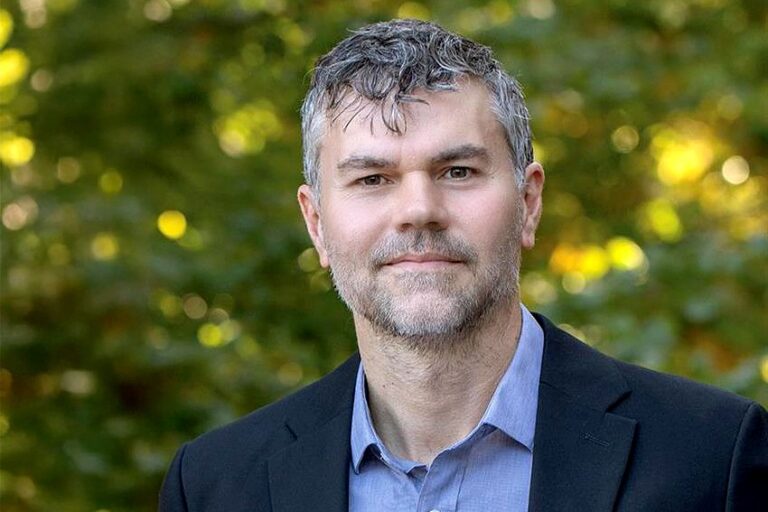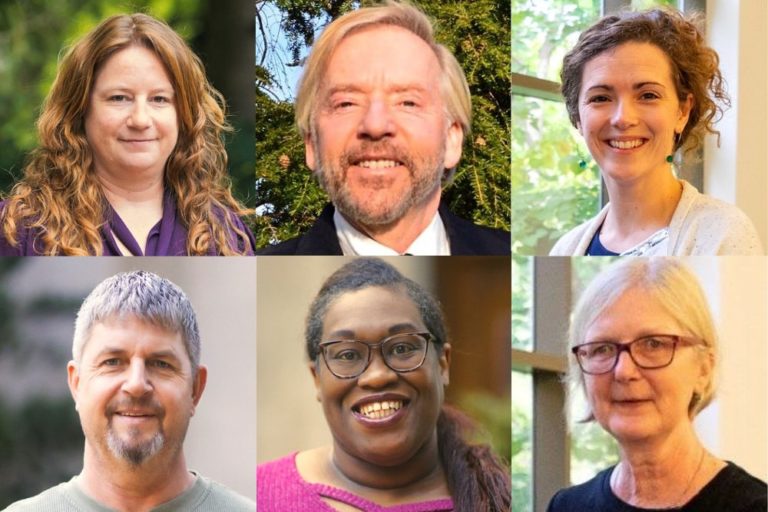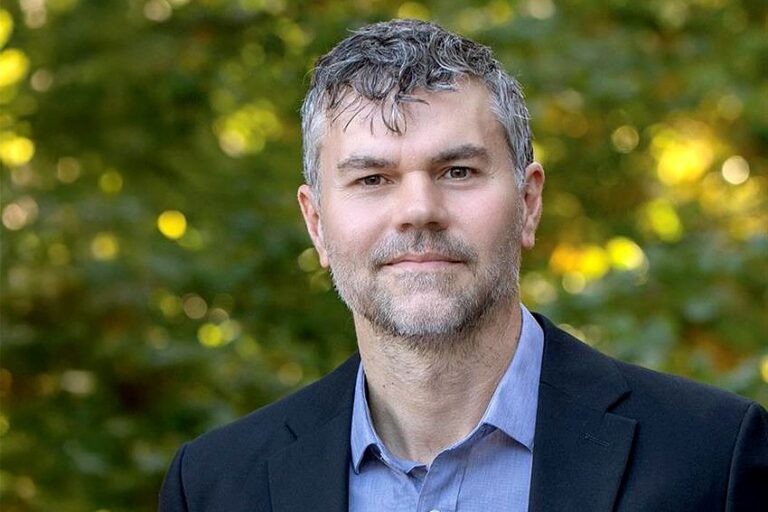Emily Burch often questioned the answers she received about the lack of diversity in her small town in northwest Michigan. And when she graduated from high school in 2018, she decided to find some answers by attending a public university downstate.
This month, Burch will earn a bachelor’s degree and three minors from Michigan State University to put her on a path toward tackling social, political, and cultural inequities. This weekend, she will don a cap and gown and graduate with a bachelor’s degree in Political Science-Prelaw and a minor in Race and Ethnicity from the College of Social Science. She also has two additional minors — one in History from the College of Social Science and the other in African American and African Studies from the College of Arts & Letters.

“As a white woman, I feel I don’t have an excuse not to be educated because of the inherent privilege I was born with,” Burch said. “To be in proximity with students and faculty whose life experiences differ from mine was transformative in helping me become a functioning citizen.”
Burch’s road to becoming a Spartan came with a few twists and turns. Her mother was a single mom when Burch was born and worked long hours as a certified nurse assistant while attending college. After 10 years, her mother earned her bachelor’s degree.
“I joke with my mom that my degree is as much hers as it is mine,” Burch said. “But she says, no, that I worked hard for it. By far, she and my grandpa are my biggest influences, as well as my stepdad and my little sister who loves to wear MSU gear to her school’s spirt days.”
“To be in proximity with students and faculty whose life experiences differ from mine was transformative in helping me become a functioning citizen.”
Emily Burch
Burch’s grandfather deeply affected her decision to attend MSU for Political Science-Prelaw. Edward Burch earned a Civil Engineering degree from MSU and always said the experience inspired him to give back to his community. He applied his talents to working on public roadways, and in the early 2000s, served as the mayor of Big Rapids.
“He definitely influenced my interest in politics,” Burch said. “I also wanted to be the first of his 20-plus grandkids to come to Michigan State. I did reach that goal.”

During her junior year, Burch began interning with Sarah Anthony, a state representative out of Lansing with close ties to the African-American community. That experience, as well as the exposure to social and cultural issues through her race, equity, and history minors, led her to pick up a third minor in AAAS.
“The conversations we had in AAAS courses and the emphasis on community gave me a whole new perspective on how history can be taught,” Burch said. “I grew up in a predominantly white area in a family that didn’t talk about issues of race. It fascinated me that there is a whole group of people that our society chooses to ignore in history and contemporary times. That didn’t sit right with me.”
Burch was intrigued, too, by the AAAS focus on Black Feminism and by the faculty expertise on how antiblack racial oppression affects sexuality and gender expression.
Uplifting the voices of women is a huge goal of mine. AAAS inspired me, and the courses I took will influence whatever I decide to do with my interests in law.
Emily Burch
“Uplifting the voices of women is a huge goal of mine,” Burch said. “AAAS inspired me, and the courses I took will influence whatever I decide to do with my interests in law.”
One of the AAAS faculty members who had Burch in class was Chamara Kwakye, Academic Specialist in AAAS.
“Emily’s commitment to solidarity and community is palpable,” Kwakye said. “I am so excited to see what she does next as I know she will continue to sew into community, freedom, and solidarity.”
Burch plans to continue working for Anthony throughout the summer. Her next few months, too, will be packed with studying for the LSAT and applying to law school.
“Because of learning more about how systemic injustice works, law school became the next logical step for me,” she said. “I’m a huge fan of promoting more fairness in sentencing and more reform in the judicial system. Coming to MSU and being able to align my interests through my major and three minors has been invaluable. I’m grateful for the education I received here.”
—By Ann Kammerer


